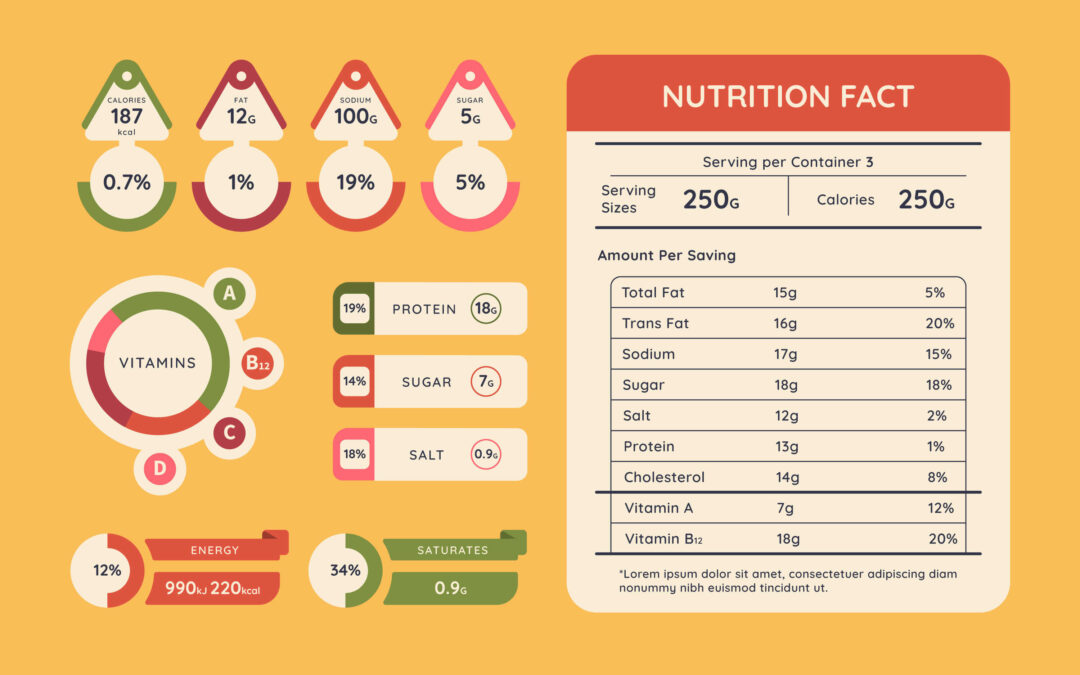Studies have shown low carb diets to help people lose weight and enhance their metabolic health (1).
However, while low carb diets are beneficial to some people, they can cause issues for others.
Any diet that significantly limits calories, including some low carb diets, may cause hormonal imbalances in some women (2).
This article looks at how low carb diets can alter women’s hormones.
Low carb and low calorie diets may affect women’s adrenals
Three primary glands control your hormones:
- Hypothalamus: located in your brain
- Pituitary: located in your brain
- Adrenals: located at the top of your kidneys
All three glands work together in various ways to maintain your hormones in balance. This is referred to as the hypothalamic-pituitary-adrenal axis (HPA).
The HPA axis regulates stress, mood, emotions, digestion, immune system, sexual drive, metabolism, energy levels, and other functions (3).
The glands are sensitive to calorie intake, stress, and activity levels.
Long-term stress can lead you to overproduce cortisol and norepinephrine, resulting in an imbalance that puts additional strain on the hypothalamus, pituitary, and adrenal glands (4).
This persistent pressure may eventually cause the HPA axis to malfunction. Although you may have seen the phrase “adrenal fatigue” used to describe comparable health difficulties caused by long-term stress, it is not a medical word, and its usage is contentious. The established medical term is HPA axis dysfunction (5, 6).
Sleep disorders, a reduced immune system, and an increased risk of long-term health issues such as cardiovascular disease, stomach ulcers, and mental health diseases are all symptoms of HPA axis dysfunction (7).
Studies on diet modifications in obese people reveal that eating too few calories might operate as a stressor, raising cortisol production — often known as “the stress hormone.” However, several of these research found no abnormalities with the HPA axis function (2).
A previous 2007 study discovered that independent of weight loss, a low-carb diet raised cortisol levels more than a moderate-fat, moderate-carb diet. However, the researchers only analyzed obese males. More research is needed to understand the relationship between nutrition and cortisol levels further (8).
A low carb diet may cause irregular menstrual cycles or amenorrhea in some women
If your diet is highly stringent, you may have irregular menstrual periods or amenorrhea.
Amenorrhea is described as the absence of a menstrual period for three months or more.
The most prevalent cause of amenorrhea is functional hypothalamic amenorrhea, which a low calorie diet, disordered eating, weight loss, stress, or excessive exercise can cause. Restricting carbohydrates may lead to some of these issues (9).
Amenorrhea results from a reduction in hormone levels, including gonadotropin-releasing hormone, which initiates the menstrual cycle (9).
This has a cascade effect, lowering the levels of other hormones such as luteinizing hormone, follicle-stimulating hormone, estrogen, progesterone, and testosterone (10).
These alterations can impair various functions in the hypothalamus, the brain area in charge of hormone release.
Amenorrhea and irregular menstruation may also be caused by a low amount of leptin, a hormone generated by fat cells. According to research, women require a particular amount of leptin to sustain regular menstrual function (11, 12).
If you consume too few carbohydrates or calories, your leptin levels may drop and interfere with leptin’s capacity to control your reproductive hormones. This is especially true for underweight or lean women on a low carb diet.
In a 2021 narrative review of studies on female athletes and their diets, the authors noted that female athletes frequently consume fewer calories, mainly carbs, which can have an impact on menstruation and other essential metabolic processes (13).
However, research on amenorrhea and low carb diets remains limited. Studies that identify amenorrhea as a side effect are typically conducted on women who have followed a mostly low carb diet for an extended length of time (14).
A tiny 2003 research followed 20 teenage females who used a ketogenic (very low carb) diet to treat epilepsy. During the 6-month trial period, researchers discovered that 45% of participants had menstruation issues, and six had amenorrhea (15).
Carbs can be beneficial for thyroid function
The thyroid gland generates two hormones: thyroxine (T4) and triiodothyronine (T3).
These two hormones are required for various human processes, including breathing, heart rate, neurological system, body weight, temperature regulation, cholesterol levels, and menstruation.
In a study of breast cancer patients, the ketogenic diet, in particular, showed no negative impact on thyroid function. The diet had a positive effect by considerably lowering lactate and alkaline phosphatase levels (16).
Other studies, however, have discovered that carbs can benefit thyroid function and that eating too few of them might impair thyroid hormone levels (17).
How many carbs should you eat?
Each person has a different ideal quantity of dietary carbohydrates.
However, the Dietary Guidelines for Americans indicate that carbohydrates account for 45–65% of your daily calorie consumption (18).
Furthermore, the Food and Drug Administration advises that for a 2,000-calorie diet, the Daily Value for carbohydrates is 275 grams.
A moderate carb intake may be better for some women
A significant 2018 research investigated carbohydrate consumption in middle-aged people. In this group, consuming moderate carbohydrates (50-55% of total calories) was related to the lowest risk of death. This suggests that people who ate intermediate carbs were likelier to live longer than those who consumed low or high carbs (19).
There are other reasons to consider modest carbohydrate consumption. Given the possible adverse effects of restrictive diets, some women may benefit from ingesting moderate amounts of carbohydrates.
This might include ladies who:
- They are highly active and struggle to recuperate from exercise.
- Despite taking medicine, I have an underactive thyroid.
- Work to lose weight or begin gaining weight, even on a low carb diet.
- Have stopped menstruating or are experiencing irregular cycles
- and have been on a very low carb diet for a long time.
- Are you pregnant or breastfeeding?
A moderate-carb diet may assist these women by promoting weight reduction, improving mood and energy levels, restoring regular menstrual function, and providing better sleep.
Other women, such as athletes or those looking to gain weight, may benefit from greater daily carbohydrate consumption. Your doctor or qualified dietitian can assist you in developing a healthy eating plan.
A low carb intake may be better for others
Certain ladies may perform better on a low carb diet.
This covers ladies who have (20, 21, 22, 23 , 24).
- overweight or obesity
- a very sedentary lifestyle
- epilepsy
- polycystic ovary syndrome, fibroids, or endometriosis
- yeast overgrowth
- insulin resistance
- type 1 or type 2 diabetes
- a neurodegenerative condition such as Alzheimer’s disease or Parkinson’s disease
- certain forms of cancer
It is worth noting that the term “low carb” is defined variably among researchers. Some diets had very low carbs, ranging from 15 to 20 grams daily. On the higher end, other diets were less restricted, with low carb referring to fewer than 45% of daily calories from carbohydrates.
Here is further information on how many carbs you should consume.
The bottom line
According to research, women’s hormones are sensitive to energy availability; eating too few calories or carbohydrates might lead to imbalances.
Such imbalances can have significant repercussions, such as reduced fertility, low mood, and weight gain.
However, everyone is unique, and the ideal carbohydrate consumption varies widely across individuals. Nutrition does not offer a one-size-fits-all solution.
Some people thrive on very low carb diets, while others thrive on moderate- to high-carb diets.
Consult your doctor or a certified dietitian to determine what would work best for you. They can help you safely modify your carbohydrate consumption.







0 Comments